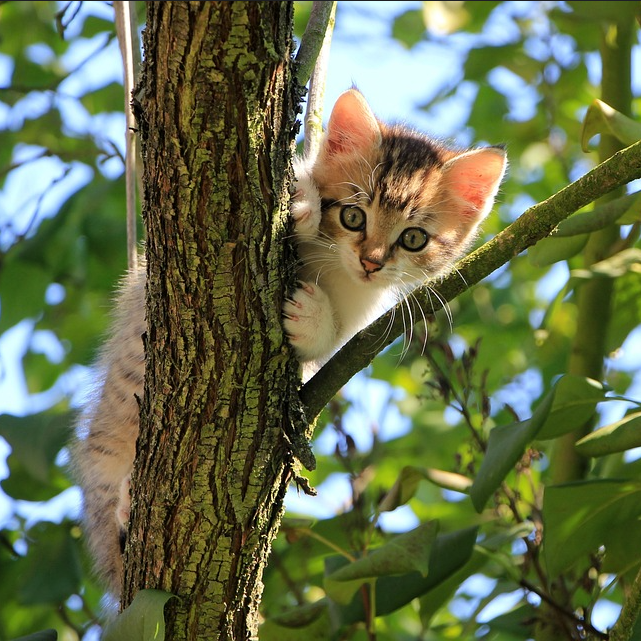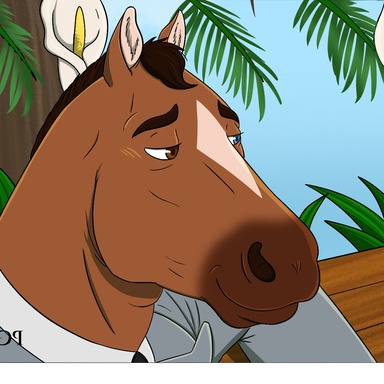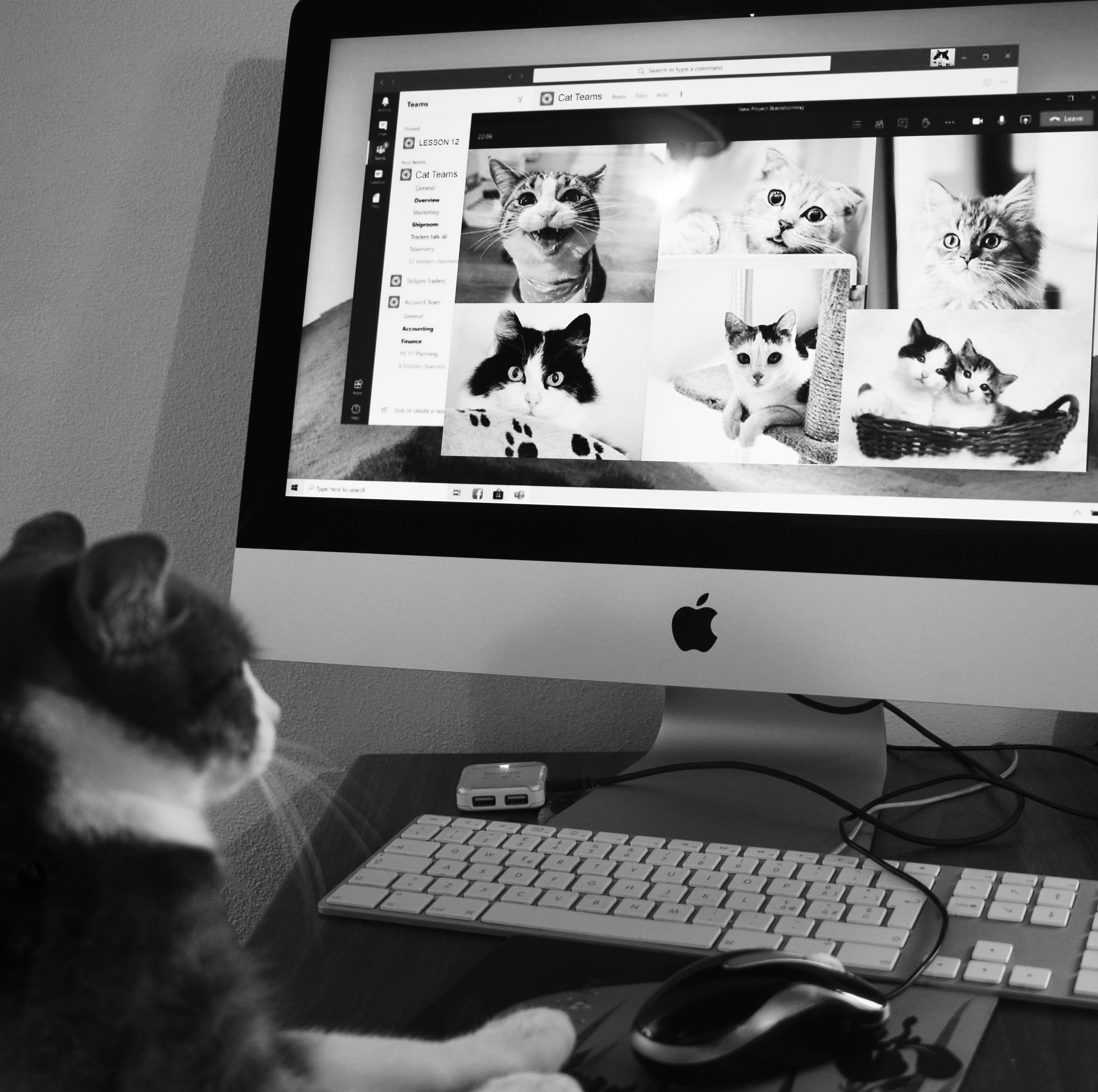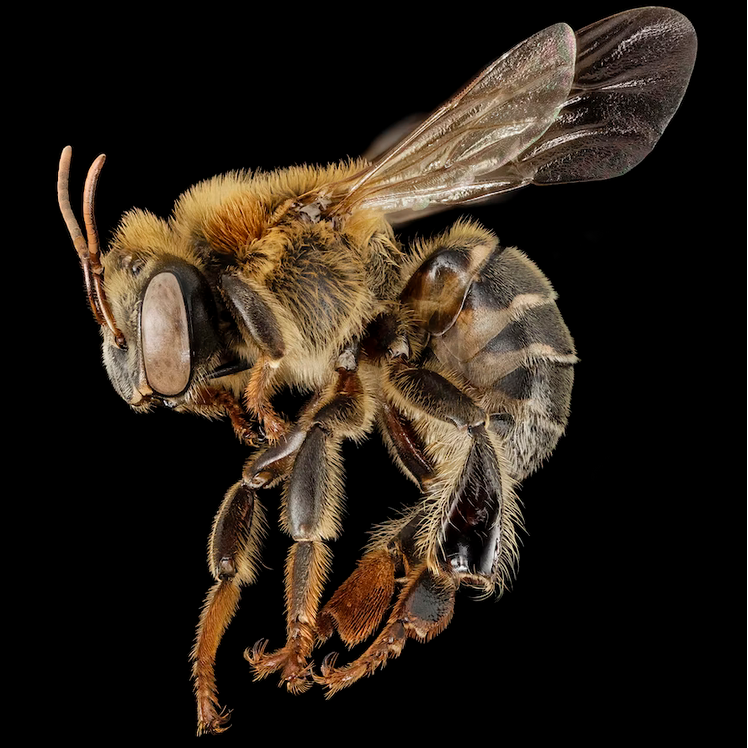How to deal with curious people

As the zoo movement grows larger and larger, there’s going to be more eyes on our community. And while there will be hostility to deal with for sure, there’s also going to be a lot of people that are just genuinely curious, or don’t know how to feel about us. When you’re dealing with strangers on the internet, it can be really hard to figure out other people’s intentions, but as a community the worst thing that we can do is respond with hostility to everyone that comes to the proverbial door. For every person we turn away, that’s one more person that could have been a potential ally. That’s not to say that it needs to be your personal responsibility to facilitate every interaction that someone has with the zoo community, your sanity comes first, but it’s always better on the whole to try and help people understand us rather than attack them for it. However, dealing with that curiosity can be complicated, because someone who is curious is necessarily someone who isn’t perfectly informed of everything. So, sometimes they might start out negative or hostile. Sometimes they might not really be asking the questions that they want the answers to. Sometimes they might just be looking to get the wrong kind of information from you. To that end, here’s a quick guide to try and help you know what to do when dealing with people curious about the zoo community.
Step one in any interaction like this, especially if it’s a random DM from a new account, is to try and verify their intentions. Not only is your time just too valuable to waste on someone trying to attack you in bad faith, but also they could potentially just be trying to get personal information out of you. While there’s no way to know for sure whether or not someone is there for the right reasons, there are a couple red flags that you can keep an eye out for. First of all, what other kinds of things has the account in question said? If this is Twitter, or another social media site, and all of their posts are them talking about “Owning Zoophiles” or sending hate to people, there’s a good chance that it’s not worth your time. When someone already has such a strong opinion about something that they’re going to make it their whole personality, you aren’t going to make them reconsider in the Twitter DM’s. Save yourself the effort, mute and move on. Outside of social media, if this is on a forum or a DM on Telegram or Discord, you can try and guess at how much info they already have about zoosexuality based on the questions that they ask.
For instance, someone who doesn’t really understand the topic will be more likely to ask more general questions, such as:
“what’s it like?”
“Does your partner enjoy it?”
“Why do you feel the way that you do?”
Conversely, pointed and specific questions imply that they already have an opinion and that they’re just trying to challenge your beliefs. Things like:
“Why do you sexually assault your animals?”
“How did you get to be like this?”
“Why do you think this is okay?”
It’s not always going to be so black and white. Someone could start with good questions but slowly turn worse. Others might have dubious questions where you can’t get a good read on their feelings. Sometimes you just have to trust your gut as to whether a conversation is going to be productive or not.
The other thing to worry about when it comes to finding out someone’s intentions is when they’re trying to get you to divulge information about yourself. There are websites, group chats, and servers that are dedicated to trying to get every single detail about people in order to put a bunch of small pieces together to form a full picture. If someone’s asking you things like…
“How old are you?”
“Are you male or female?”
“Is it dinnertime for you?”
“What kind of dog do you have?”
“Do you live in the city?”
…and other things like that, it’s likely that they’re specifically fishing for information. When this happens, it’s also important to let your peers know about it as well, in order to make sure that nobody else falls into their trap. Tell your friends about it, and if it’s in a zoo controlled space make sure that you tell the mods or admins about it as well. That helps to keep everyone safe.
One thing to keep in mind is that not everyone is going to be great at socializing. If someone has never been part of a minority group before, or is just generally not thinking about it from your end, they may raise a couple red flags but not actually be an issue. I’ve certainly had people I’ve spoke to who started out with a negative general lean against zoosexuality but who came around. That negativity wasn’t meant to be hostile, it was just something that unintentionally came out from the way that zoosexuality is spoken about. I had one conversation where the first question they asked me was “Why do you like to rape animals?”, but after explaining that that’s not what being a zoo was, they were incredibly polite and cordial for the rest of the conversation. Like always with this topic, you can choose where you want to draw the line, it’s just important to remember that others aren’t going to be as informed about the topic as you are, and so may ask insulting sounding questions just out of ignorance. Keep that in mind.
Once you’re in the conversation, and you have a feeling they aren’t a troll, do your best to be friendly, open, and informative. And don’t be afraid to ask questions of your own! Understanding where someone else is coming from can be very helpful in learning about why it is that they’re curious. You can ask things like:
“Do you have any animals?”
“What got you interested in talking about this?”
“How do you feel about animal rights in general?”
Getting to know someone means that you can get a feel for what concerns they have about zoosexuality much faster. If they’re someone who grew up with a dog, for instance, but that dog never expressed sexuality, and so they don’t understand that that’s not true of all dogs, that’s something you can get to a lot faster if you ask them about their platonic relationship with the animals in their life. If they’re talking to you because they’re someone who supports sexual rights and fantasizing, but isn’t sure how to feel about someone actually having sex with animals, you can tell them about how sex with animals isn’t inherently harmful and explain things like size compatibility and the ways that animals can show that they’re not only “just putting up with it,” but that they can have an enthusiastic interest, sometimes even a fairly assertive interest, in being part of sex with a human as well. A lot of the time, the questions people ask are just the questions that they feel like they should ask, not actually what they want to know. If someone is curious about zoos, that means that they’re willing to accept the possibility that being zoo is okay, but there’s a couple of snags they keep hitting. Properly identifying those snags and explaining them away is the best way to try and create an ally.
Another powerful, although potentially dangerous, tool that you have at your disposal is anecdotes. Sometimes, opening up a little bit and giving people a look at your own experiences can help someone become sympathetic, and understand your side a little bit better.
When people ask me what dating a dog is like, I love to tell them about how me and my partner go on dates just like two humans dating would. We have a restaurant near us where we go to fairly often. They have an outdoor patio with big outside chairs, and during the warmer months I’ll sit at one side of the table and he’ll hop up on the chair and sit at the other. They’ll bring out a bowl of water for him, as well as some chunks of meat, and I’ll get a glass or two of wine and a meal, and we’ll have a nice dinner together. Then, at the end of the night, we walk home, snuggle up and watch some Netflix or whatever. It’s a great night.
A story like that shows people a side to zoosexuality that they probably hadn’t considered before. When most people think of zoos, it’s just lust. But when you show them that there’s also a lot of love, romance, and even just plain normal days just like the days that they have with their human partners, that’s a great way to communicate that we’re the same as them. We just want to be with our partners, the same way anyone else does. When you let people into your life and your experiences, that’s the best way for them to come to understand who you are. And once you understand who someone is, it’s way easier to relate to them.
The only caveat to sharing personal stories is that it can be a source of personal information that you’re giving out, so be very careful with the details that you’re putting into them. Avoid any specific places, such as the names of restaurants or streets, or specific events that only happen in certain places, such as town festivals. An anecdote can be about anything, so it’s impossible for me to convey every single thing to watch out for, but when you finish typing your story, give it a quick read over from the perspective of someone else, and try to figure out if there are any details that need changing. Safety first!
The last thing I want to touch on here is what to do if you’re either uncomfortable talking to people, or if someone is asking you questions that you don’t have answers to. You don’t have to put yourself in a situation where you’re talking to someone that makes you uncomfortable, or hell even if you’re just tired that day and don’t want to deal with it. You can always politely tell the person asking you questions to try and message someone else. Extra points if you specifically direct them to someone that you know is willing to take the time to talk to them. When I first joined the community, I didn’t know nearly as much about zoosexuality as I do now. And so when people referenced specific people or studies, or even just had certain confusing arguments, there were a lot of times that I just didn’t really know how to respond. Thankfully, I had friends who were more knowledgeable than I to help. Many times I would tell someone “Hey, sorry, I’ll be honest I don’t really know about that, but why don’t you try messaging @(whoever) and they’ll probably have a much better answer!” If the person you’re talking to is someone who actually has questions, most of the time they’ll do just that. And often, I’d get a message from them again thanking me for sending them to someone that could help. There’s a whole community of zoos out there, don’t be afraid to ask for help, especially when it’s a situation where it’s to the community’s benefit!
If you do have a great conversation with someone, don’t be afraid to link them to other cool zoo media projects. Things like ZooTT, To Thine Own Self Be Zoo, or this magazine are all great sources of representation, and may be of interest to them if they do want to dive a little deeper.
All in all, the most important thing to remember is that your health comes first. If you don’t want to talk to someone, don’t feel like you have to. If someone is making you mad, don’t be afraid to block them and forget about them. But, if you are approached by people who are just genuinely curious and want to know more, hopefully these tips can help you turn them into an ally for the cause.
Article written by Tarro (January 2023)
Find them at https://twitter.com/hereforthezoo
Questions, comments or concerns? Check out the discussion page over on ZooCommunity, or join our Discord server!




